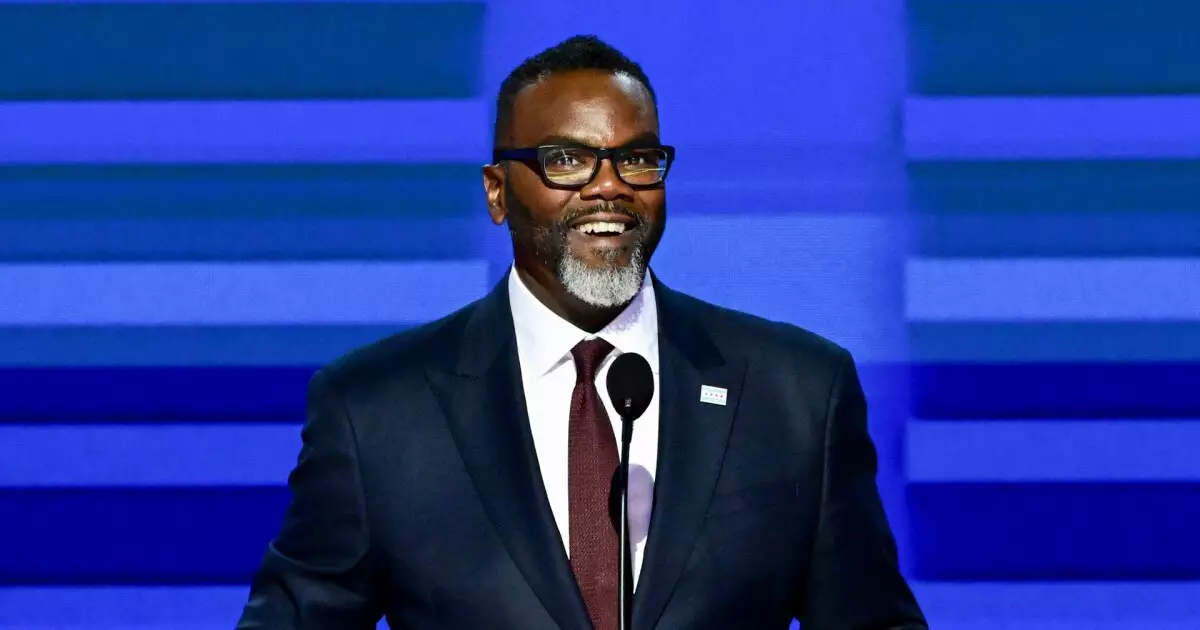In a significant move aimed at addressing the city’s substantial financial burden, the Chicago City Council has opted to refinance $1.5 billion in municipal debt. Following initial hesitation during the council’s meeting on October 9, the approval was finally secured with a 35-12 vote, allowing the finance team to plan bond issuance for the final quarter of 2024. This strategic financial maneuver, however, is not without its complications and criticism, shedding light on the ongoing struggles faced by Chicago’s financial administration amid a landscape of rising costs and fiscal challenges.
The refinancing strategy includes the issuance of approximately $850 million in general obligation (GO) bonds, set to be callable from January 1, along with a tender offer to repurchase about $500 million in existing bonds. The city anticipates lowering its average interest rate from 5.62% to approximately 3.75%. While Mayor Brandon Johnson’s administration heralded the deal as a testament to sound financial management, promising $110 million in present-value savings, it also raises pertinent questions about the city’s long-term financial health.
The financial implications of such decisions extend beyond immediate cost savings. The refinancing plan suggests a precarious balance, one that may compromise financial sustainability in the long run. Municipal Market Analytics (MMA) has indicated that this financing strategy might illuminate the city’s restricted financial options in the context of an increasingly tumultuous budget cycle.
Concerns and Critiques from Elected Officials
Critics have voiced their apprehensions surrounding the refinancing plan. Alderman William Conway defended the fiscal efficacy of the deal, assuring that the amended ordinance will restrict funds solely to refinancing purposes. However, dissenting voices, including Alderman Raymond Lopez, highlighted fundamental concerns regarding transparency and accountability in city finances. Lopez remarked about missed opportunities to retain more favorable conditions from major banks, hinting at a lack of thorough exploration of cost-saving possibilities.
The debate has been fueled by a distrust of municipal financial management processes. The potential use of proceeds for unexpected operational expenses has been flagged as a significant point of concern, raising alarms about fiscal discipline. With high stakes involved, the implications of such decisions could extend far beyond immediate budgets, affecting the reputation and creditworthiness of the city.
Transparency and Accountability Issues
The city’s Chief Financial Officer, Jill Jaworski, emphasized a commitment to responsible stewardship of taxpayer dollars. However, skepticism persists. Critics argue that there must be greater transparency in financial operations, particularly regarding the intricate details behind projected savings. Before the council’s pivotal vote, Illinois Comptroller Susana Mendoza expressed similar sentiments, advocating for a thorough analysis of the anticipated financial benefits of the refinancing deal.
The lack of clarity in how savings will be realized, coupled with worries over potential loopholes in the ordinance, have added to the tension surrounding this financial undertaking. Mendoza’s criticism underscores the need for a more open dialogue with the public regarding fiscal strategies that directly impact citizens’ lives.
The Risks of “Scoop-and-Toss” Strategies
Complicating matters further is the notion of using a “scoop-and-toss” refinancing strategy. MMA’s Lisa Washburn pointed out the risk that despite assurances, the structure of the refinancing could verge dangerously close to this approach, which postpones payments rather than addressing underlying debt challenges. Such strategies may alleviate immediate burdens but fail to serve as sustainable solutions, thereby perpetuating a cycle and possibly worsening future financial conditions.
There is an undeniable urgency for Chicago to address ongoing budget deficits without resorting to one-time financial maneuvers. As the city’s financial landscape continues to evolve, officials will need to confront these issues head-on and pursue recurring solutions to ensure long-term fiscal health.
Chicago has recently seen changes in its credit ratings, with Fitch Ratings upgrading its status in summer 2023, while other agencies have maintained stable outlooks. This shifting landscape indicates a cautious optimism from some quarters but also raises concerns about the consistency and reliability of the city’s creditworthiness. As financial analysts closely scrutinize the implications of the recent refinancing, the stakes remain high for Chicago’s fiscal future and its ability to navigate prevalent economic challenges effectively.
The decision to refinance $1.5 billion in debt by the Chicago City Council marks a critical moment in the city’s ongoing battle for financial stability. While it offers short-term savings and relief, deeper concerns about transparency, accountability, and the long-term palette of Chicago’s budget loom large. Making informed, strategic decisions is vital moving forward in order to foster enduring fiscal health, and city officials must prioritize both transparency and sustainable financial management in the days ahead.

